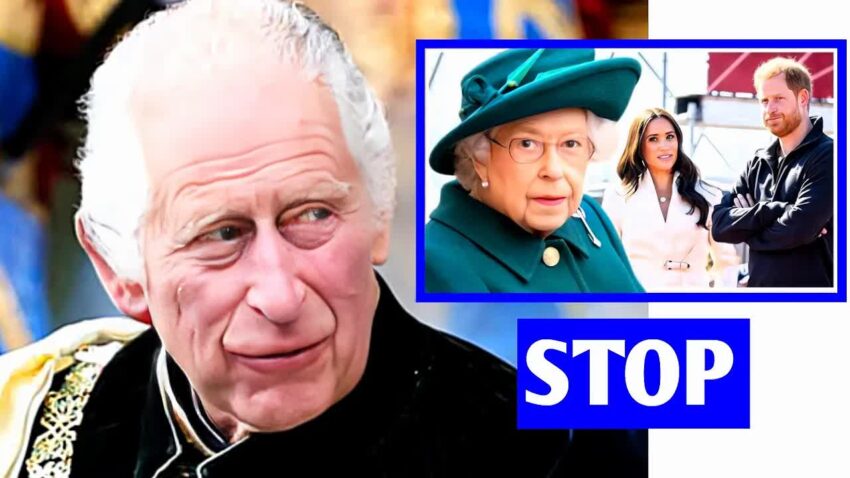In the world of royalty, where tradition and decorum reign supreme, the clash between the public’s craving for scandal and the monarchy’s need for privacy is a constant struggle.
The tumultuous relationship between Meghan Markle, the Duchess of Sussex, and the British royal family has been under intense scrutiny and speculation ever since her union with Prince Harry.
The unfolding story is rife with whispers of hidden truths, power struggles, and rifts that have captured the attention of a global audience.
The ongoing saga delves into the intricate dynamics at play, the accusations being thrown around, and the potential repercussions of this royal drama.
One prevailing argument suggests that the royal family should ignore the perceived threats posed by Meghan and Harry, allowing them to reveal their secrets publicly.
Advocates of this stance believe that such disclosures would be met with calculated responses from the royals behind closed doors, enabling them to maintain a dignified silence while effectively countering any damaging claims made by the Sussexes.
Central to this narrative is the allegation of Meghan’s control over Prince Harry and the turmoil within the royal household.
Critics argue that Meghan’s entry into the family has caused significant strife and discord among the Windsors, steering Harry away from his familial duties and pitting him against his own kin.
This portrayal paints a vivid picture of a power struggle within the royal ranks, with Meghan depicted as the mastermind orchestrating the events.
Opponents of the Duke and Duchess of Sussex claim that their actions signify a broader ambition to carve out their own unique brand of royalty, distinct from the traditional norms of the British monarchy.
Detractors argue that the couple’s high-profile appearances and engagements are not official duties but rather a strategic move to boost their personal image and secure financial independence.
This divergence in goals sets the stage for a clash between the couple and the institution they were once an integral part of.
British journalist Piers Morgan emerges as a vocal critic of Meghan Markle, attributing the rift between Harry and the royal family to her influence.
Morgan accuses Meghan of harboring intentions to dismantle the monarchy, thereby altering the fabric of British society irreversibly.
His scathing remarks have intensified the already divisive discourse surrounding the Sussexes and their ties with the royals.
With the recent demise of Queen Elizabeth II, speculations arise regarding the potential impact of her passing on the strained relationship between Prince Harry and the royal family.
Some fear that her absence may exacerbate existing tensions, removing a crucial moderating force.
Conversely, there are those who cautiously hope that shared grief and the need for unity during this period of mourning could act as a catalyst for reconciliation and healing.
The narrative of Meghan Markle and Prince Harry has gripped audiences worldwide, shedding light on the inherent conflict between the monarchy’s quest for privacy and the public’s hunger for revelations.
Allegations of control, aspirations for independence, and suspicions of hidden motives have all contributed to the intricate storyline surrounding the couple.
As the world watches on, the ultimate resolution of this royal feud remains uncertain, prompting contemplation on the impact of exposed secrets, tested loyalties, and the resilience of the British monarchy amidst a changing societal landscape.
